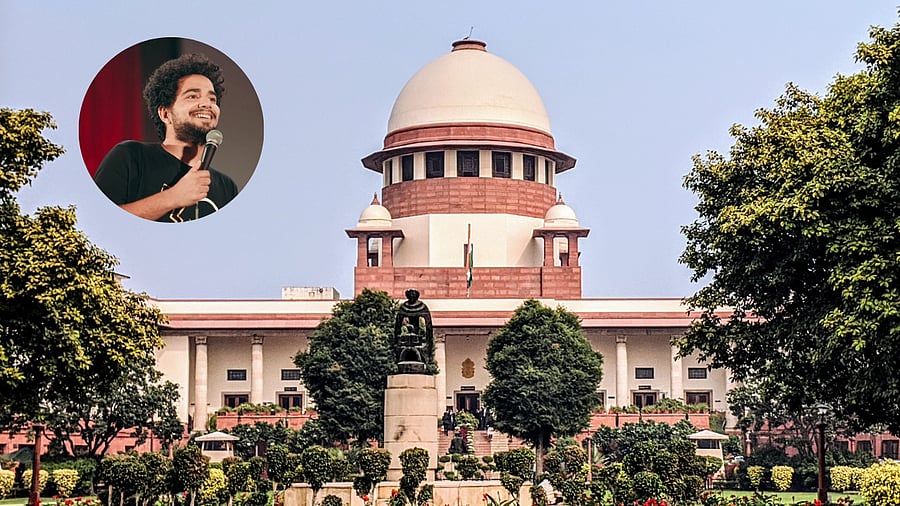
Supreme Court on Samay Raina case.
Credit: iStock photo/Instagram@Samay Raina
The Supreme Court on Monday said influencers who indulged in "commercial speech cannot claim fundamental right" and they should bear in mind sensibilities of the community at large.
A bench of Justices Surya Kant and Joymalya Bagchi sought to distinguish between freedom of speech and commercial speech asked the comics who lampooned the physically challenged to people to put out an apology on their channel and inform about the penalty they were ready to pay for their acts
Hearing a petition by Cure SMA Foundation of India, which supports patients and families affected by spinal muscular atrophy, the court asked influencers Samay Raina, Vipun Goyal, Balraj Paramjeet Singh Ghai, Sonali Thakkar, and Nishant Jagdish Tanwar, said, "whatever apology you have tendered. You go and tender that apology on your podcast, whatever channel. Display your unconditional apology there".
The NGO had flagged jokes mocking people with disabilities.
The bench said, "Humour is a part of life and we can take jokes on us. But when you start laughing others, and thereby create a breach of sensibility. It is not only a disability. We are a country of communities…so when on a community, humour is generated, it becomes a problem. And this is what persons who are influencers and so-called influencers of today should bear in mind".
Attorney General R Venkataramani, representing the Centre, submitted that the government would take some time to lay down guidelines for comics and influencers.
He said, the guidelines should try to find out if they can sensitise as far as possible it can go, and beyond the sensitisation if it fails, then somebody should take responsibility for their defaults.
The bench, however, said, "It is not only freedom of speech here. It is commerce. Commercial speech".
Referring to the judgment in Amish Devgan case, the bench said, "we have classified speech as free speech and commercial speech, and prohibited speech…if you fall into the overlap of the commercial and prohibited, you have no fundamental right there".
Senior advocate Aparajita Singh, representing the foundation, said good sense has prevailed "and all comics have apologised".
Citing the Cinematograph Act, she said, it says that one has to be sensitive to these issues, and there should be guidelines, in connection with disabilities, so that people can be put on notice that these are things, which they cannot do.
The court said let the concerned ministry do some exercise in connection with these issues.
The bench said the guidelines must not be a reaction to one incident and it has to be broad-based, and added that court would like to see the opinion of domain experts.
Samay Raina and the other comics named in the case were present in the court.
In a caution, the court told them, "Today it's about disabled, next time it can be women, senior citizens, children... where will this end?"
Singh suggested that instead of imposing penalty on the respondents, the court could consider asking them to contribute to activities, which benefit the cause of disability and patients of rare diseases, and they should use their influence in a positive manner.
The bench said that the comics would post an apology on their YouTube channel and also inform the apex court about the penalty they are willing to bear. The court fixed the matter for further hearing in November. The petition was clubbed with the cases linked to India's Got Latent controversy, in which YouTuber Ranveer Allahabadia was charged.
